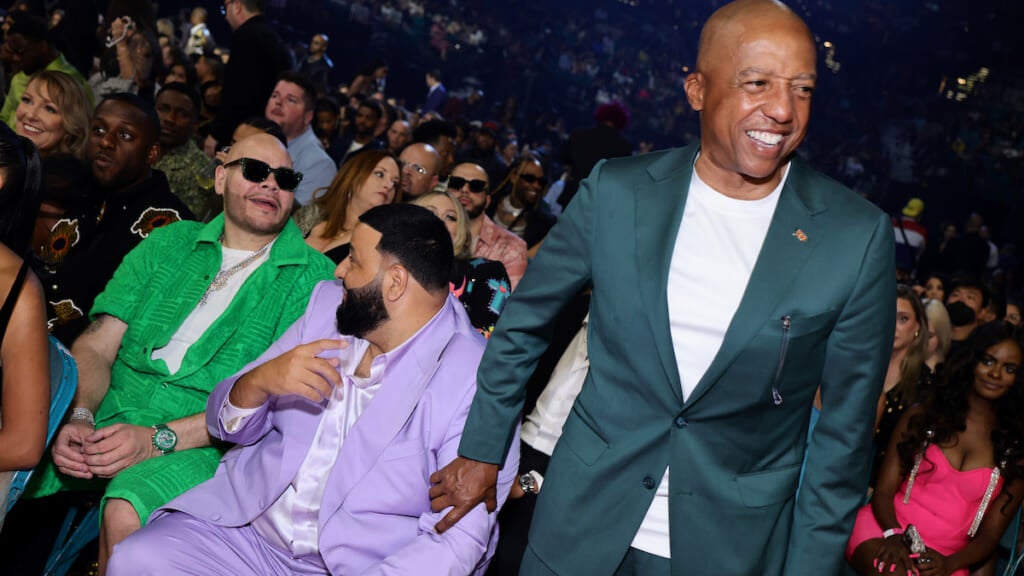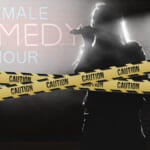That’s in part because of a controversial step by prosecutors to cite Young Thug’s lyrics, music videos and social media posts as part of “an overt act in furtherance of the conspiracy.” Young Thug lyrics like “I killed his man in front of his momma” and other verses in songs by Nicki Minaj and other artists were suddenly being used as evidence against the rapper, who’s accused of racketeering spanning over nearly a decade.
The targeting of rappers over their creative content sparked other artists, recording executives and politicians to mobilize. On Monday, the California state assembly unanimously passed a bill, AB 2799, which would restrict prosecutors from using a musician’s lyrics against them as evidence in criminal or civil cases. (Governor Gavin Newsom is expected to sign the legislation as soon as next week.) A similar bill failed in New York after passing that state’s senate.

And many in the industry are actively lobbying for federal legislation, particularly the Restoring Artistic Protection Act — or RAP Act — that is currently making its way through the U.S. Congress after being introduced last month. Many decry the legal system’s attack on Young Thug as well as other hip-hop artists nationwide as a fight over artistic expression for young Black men who have been unjustly targeted for their creative output.
“When we start criminalizing the First Amendment, you no longer have a democracy, and democracy is already hanging by a thread,” U.S. Rep. Jamaal Bowman (D-N.Y.), one of the sponsors of the RAP Act, told TheWrap, adding that he believes the bill could pass the House by the end of the calendar year. “It’s another attack on Black men, it’s another attack on Black art, and we have to do everything we can to protect Black art and also Black freedom of speech.”
As of 2020, Bowman said, prosecutors in over 500 criminal cases have used artists’ lyrics as evidence against them — and virtually all of them were young Black male rappers. Cases involving rock or heavy metal lyrics were typically thrown out before going to trial, he added.
Earlier this year, the subgenre of Drill Rap came under increased scrutiny when a prosecutor in Bronx, New York, indicted 20 individuals as part of what’s been called “Operation Drilly.” The Louisiana rapper Mac Phillips, who was convicted of manslaughter in 2020 after prosecutors used songs like “Camouflaged Assassin” against him, was released from prison 20 years later amid a public outcry over his conviction. And the London-born 21 Savage was arrested by U.S. Immigration and Customs Enforcement agents in 2020, leaving his immigration status in limbo even two years later.

Researchers have detected a bias in how hip-hop artists’ work is perceived. Dina LaPolt, a veteran music and entertainment lawyer who has represented numerous rappers, detailed a similar case in Maryland involving the use of a rapper’s lyrics as evidence that she called “blatantly racist” and said set a “dangerous precedent.” LaPolt later wrote a white paper titled “Rap Music and the American Justice System” showing the extent of such cases around the country.
In one study LaPort cited, participants were presented with an identical set of song lyrics — but when told they were rap lyrics and not country/folk, they were likely to find the words violent and autobiographical. “People were shocked. And then when I broke down the country lyrics, they were really shocked,” LaPolt said. “And then they just started taking a hold. The people started getting involved and were saying, ‘Oh, my God, this is egregious. We have to do something about it.’”
LaPolt’s research has started to take root across the music industry as well, and she feels that the urgency shown by those in both the Recording Academy and the Recording Industry Association of America (RIAA) has lit the fire under lawmakers to allow them to tackle the issue in just a two-year span.

For decades, hip-hop artists have fought against racist stereotypes that rap lyrics and music encourage violence or that their art is a literal fact-based extension of the rappers’ own lives and experiences. It’s a battle that extends back to the uproar over the 1988 N.W.A song “F— the Police” or albums by 2 Live Crew that got banned from store shelves in the late ’80s and early ’90s.
“I had to pinch myself and say, ‘Oh s—, here we go again.’ I’ve been in the business going on for decades, and I’m reliving things that I saw as a young kid that are now happening to me, but I never in the history of this business heard of a RICO case being brought against a label,” Kevin Liles, a former Def Jam president and the founder and CEO of 300 Entertainment, told TheWrap. “It was hurtful, harmful, but it made me gear up and say, ‘The job’s not done.’ If I’m going to be in an industry that’s going to continue to be targeted, now that we have the No. 1 music in the world, I’m going to help make policy to protect all artists, to protect Black art and to protect freedom of speech.”
The RAP act as well as the state bills have drawn wide support from industry stakeholders like Liles and some of the biggest names in rap. Jay-Z and Meek Mill both publicly championed the New York legislation, Stacey Abrams recently voiced her concerns about anyone using the written word as a “proof point” in criminal cases. And labels like Universal Music Group, Warner Records and Atlantic Records have thrown their weight behind the federal RAP Act in particular.
In a letter to the California Senate last Thursday, RIAA chairman and CEO Mitch Glazier noted that artists like Eric Clapton, Johnny Cash, Freddie Mercury and even The Beatles have sung about shooting “a man in Reno just to watch him die” or how “happiness is a warm gun” — but that their words shouldn’t be taken literally and used against them in a criminal courtroom.

“Rooted in imagination, creative expression’s greatest capacity is to lift us out of the real world and to present us with the unexpected, the unlikely and the unthinkable. Hyperbole and fantastical imagery are customary, and often necessary, elements of that creative expression,” Glazier wrote. “Yet, when rap and hip-hop artists adhere to this time-honored tradition of make-believe, their lyrics are too often — and unfairly — taken literally, stripped of the poetic license afforded other genres. While such mischaracterization may be uneventful in everyday music consumption, its application in criminal proceedings can skew the truth and destroy artists’ lives.”
Harvey Mason Jr., CEO of the Recording Academy, said that his organization’s lobbying arm worked directly with the federal bill’s other sponsor, Rep. Hank Johnson (D-Georgia), to craft the language of the bill and rally support from industry stakeholders. And he added that it is issues like this are the reasons why the Academy and the money it receives from the annual Grammy awards telecast exists in the first place.
“Not having this legislation has allowed people to utilize people’s creativity and lyrics against them when we know that’s not fair,” Mason said. “I don’t think anybody in the studio when they’re in their cars in their garage or when they’re writing music, they shouldn’t be thinking about, ‘Is this going to be something that I shouldn’t say in art and music?’ We should be able to express ourselves. We should be able to say things that are on our minds and our hearts or in our imaginations without fear of somebody bringing this up in a courtroom.”

California State Assemblyman Reginald Byron Jones-Sawyer, the sponsor of the state’s AB 2799, agreed that there’s been real “urgency” among music industry professionals, saying that prosecutors’ use of lyrics raises serious First Amendment concerns.
“The best thing we can do is have a serious conversation about creative expression, and really about the social fabric of what’s going on right now,” Jones-Sawyer said. “AB 2799 will give judges needed guidance for evaluating whether creative expression is admissible during a criminal trial and provides a framework which will ensure creative expression will not be used to trigger or reinforce stereotypes or activate racial bias.”
Behind the scenes, though, LaPolt has also put together a working group to document similar cases of people convicted due to the lyrics of their songs. Should these bills become law, she and her colleagues should be able to mobilize the courts to overturn some of those convictions.
In the meantime, Young Thug and Gunna remain in jail awaiting trial. Liles, who testified on their behalf in June, said they were holding up well despite the very real toll of their detainment, emotionally and financially. “Both of them are now away from their families and unable to generate revenue,” Liles said. “You can never normalize being in a cell or getting away from your family’s life.”

In his emotional testimony, Liles defended Williams’ character but also wondered why he had to testify to defend the good that hip-hop and Williams in particular have done in the world, saying that when he founded the YSL label with Williams, they said, “We’re going to change some lives, and that’s what he’s done.”
Even so, prosecutors haven’t backed down on their case against Young Thug, who has been accused of multiple felonies — including possession of drugs and illegal firearms, and of renting a vehicle used in a drive-by shooting that killed an alleged rival gang member. In a hearing last week, the lead prosecutor called the rapper “a dangerous person… YSL is a dangerous gang, and this is the man who leads that gang, and he’s dangerous.”
But Liles feels Young Thug’s case fits into of a long pattern of injustice in the U.S.
“We live in America. I don’t think that this is a short fight,” he said. “We need to look at ourselves in the mirror as a country and ask ourselves why does this keep happening in the criminal justice system… I will stand at the mountaintop and believe exactly what Martin Luther King Jr. said: ‘We have to allow the arc of justice to bend in the right way.’ And right now, it is not bending in the right way.”


